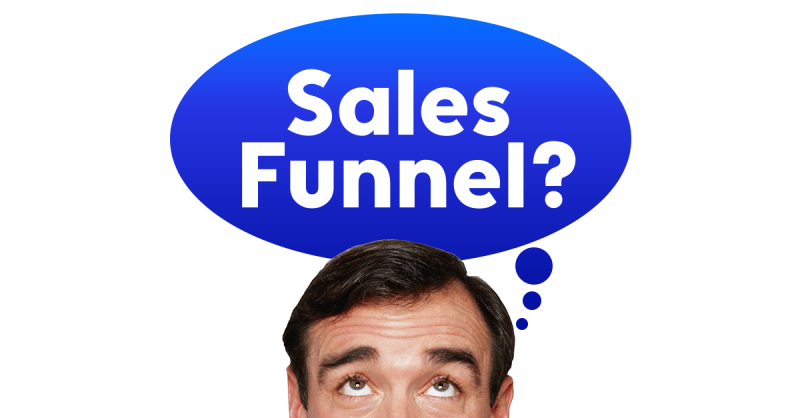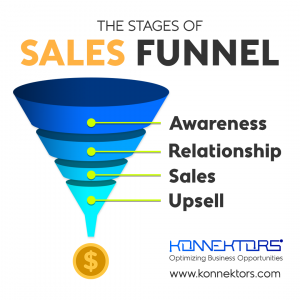Before we head straight to the point of this article, let us first define these two terms- what are “leads” and “sales funnel”?
These two terms are the key factors to run a successful business. Why?
For a simple definition, leads are your potential customers and the sales funnel nurtures these leads into real clients. These two are important and without the other, you will be challenged to generate sales for your business. The question is, how can you make it work?
Put it all in the Sales Funnel
Businesses continue to run because businesses are making sales. But making a few sales is not enough. Many businesses employ different marketing strategies to generate more leads and potential customers. However, without the proper system of “grinding down” even if you have thousands of leads, you will not get the clients that would acquire your services. Worst, you have kept clients on the file because of poor data management.
You need a sales funnel!
A sales funnel is a fundamental method in any business model that allows you to bring potential customers a step closer to the buying decision. This is done through a series of marketing actions like emailing, cold-calling, content writing, or creating a website that will attract leads to you.
Like the shape of a funnel, at the top, you try to get as many leads as you can. This is done by launching campaigns that can attract customers like a fisherman throwing a net out wide to catch as many fish as possible.
As prospective customers go through the purchasing decision, there is a reduction of numbers at each level. Why? It’s because these numbers will go through a series of “interventions”. We all know every single lead is not going to be converted. This will continue to decrease as you get closer to getting your customers and sales.
The sales funnel should have a holistic approach, so that every phase needs to align and work together to make the buyer journey to the bottom successful.
Developing the right Sales Funnel
Now that you know what a sales funnel is, we can now move forward to develop a marketing plan and execute each of the stages in the sales funnel to yield desired results. That’s why we need to consider each phase in generating a positive buyer journey and leverage it.
The Phases of a Sales Funnel
Awareness Stage
In the first stage, your goal is to let people know that YOU exist. All of your prospects should be aware of their problems and your main priority is to establish a sense of trust by pointing out these problems and offering how your services can help solve those problems.
Relationship Stage
Once people are already aware of your services, you need to continue building a relationship with them. Thus in this stage, you should know how you can build trust and authority so that people will feel comfortable buying from you.
Sales Stage
After your prospects have been through the Relationship Stage, you need to pursue and engage them so that you can close a sale. It is important that you already know what is the best way to get people to buy your services or product.
Upsell Stage
Finally, this is where businesses can make more money by selling additional related products or services to their customers. The customers already trust you so they are more likely to buy your products.
Finding the right tools
In today’s age, traditional sales tactics may not work anymore and with the rise of digital marketing, you can now solidify your sales funnel with less effort. Tactics in digital marketing, like social media, are helpful for brand awareness at the top, content marketing in the middle, to customer relationships at the bottom.
Below are the most helpful digital marketing tools useful in marketing and sales funnel:
- Social media– is a critical tool to use at the start of the funnel for building brand awareness, but it is also great for customer retention and keeping people engaged in your brand.
- Email– is one of the traditional tools however it is still a powerful tool in a funnel and can be effective at every stage, especially in the retention stage. You can incorporate emails in other tools as well.
- User Reviews– are often the deciding factor on whether the purchase is made was a positive or negative one. Most likely half of the people find the information in a user review more important than any marketing material because it will show how they can trust you and your products.
- Website and Search Engine Optimization- are important tools in the awareness phase. If you want to get traffic to your website, you need to create SEO-friendly content such as blogs and get backlinks that will help you establish your brand online. The more you reach the top of the search results, the more people you can reach.
- Lead magnets– are a valuable supplementary content or piece of information that are given in exchange for contact information like an email address or phone number. This could come in different forms like a free e-book or whitepaper.
Why Do We Need a Sales Funnel
As stated at the beginning of this article, a sales funnel is a fundamental method for any business. Sales funnels can solve one of the biggest problems that companies usually encounter- creating a system to acquire profitable customers continuously at scale.
Sales funnels have a lot of benefits however these are the main benefits:
- Systematically generate new leads.
- Automatically Build relationships with leads through processes and automation
- Turn prospects into “real” customers.
- Sell more products or services and get repeat business to existing customers.
Conclusion
Now that you know more about all of the opportunities for conversion throughout your sales funnel, you can now focus on making smaller conversions and walk your prospects through your sales funnel stages without a hassle. You’ll not only increase sales conversions but will likely create a much more loyal customer base that will continuously get your services or products.
So what are you waiting for? Jumpstart now your lead generation services with Konnektors. Contact us now!






